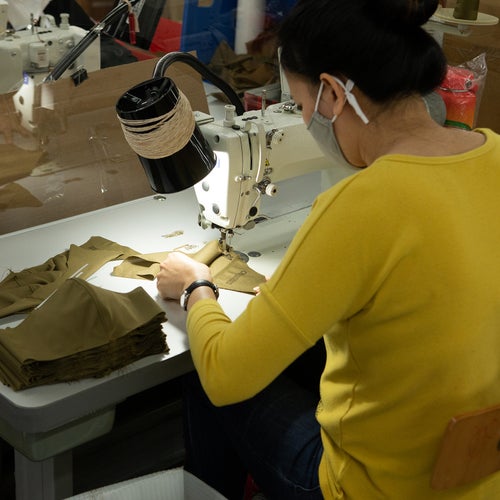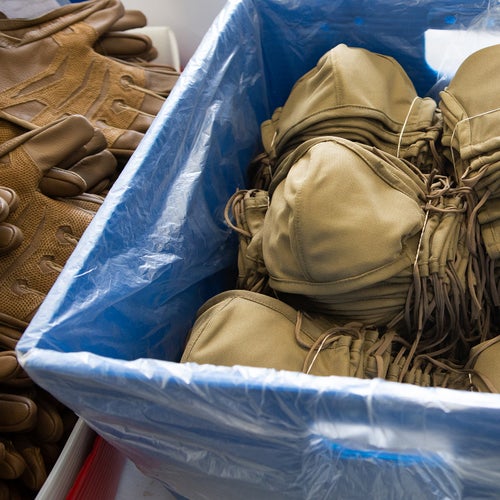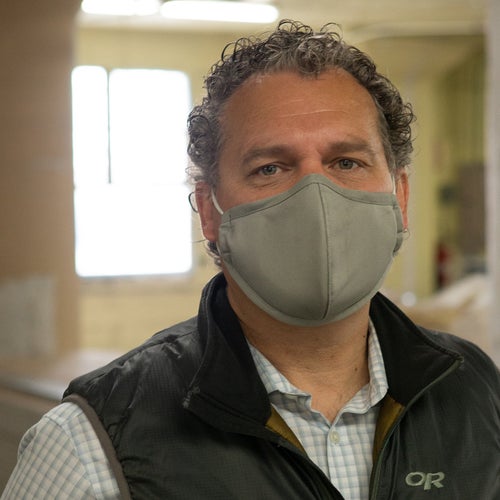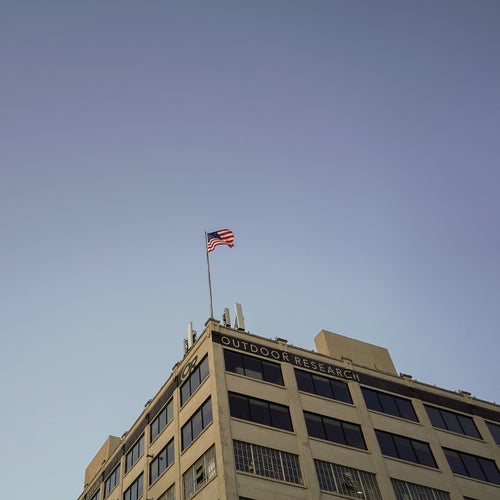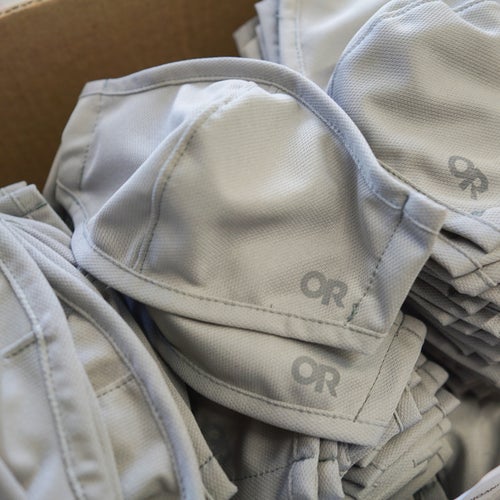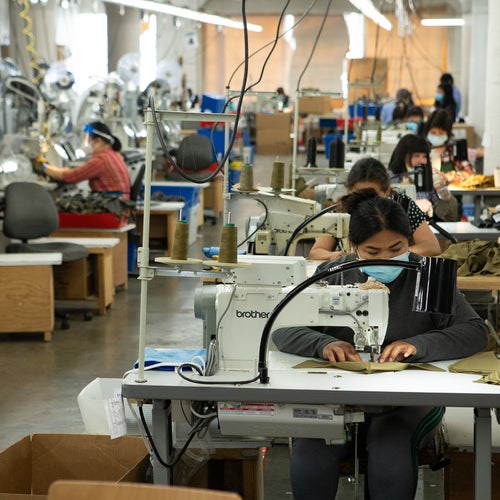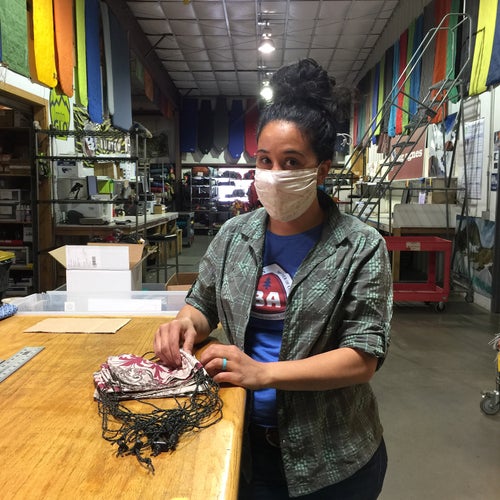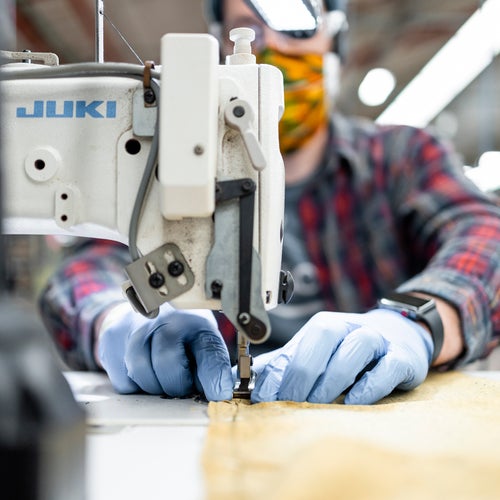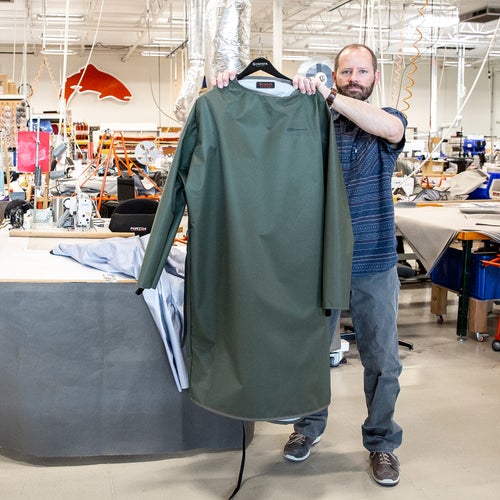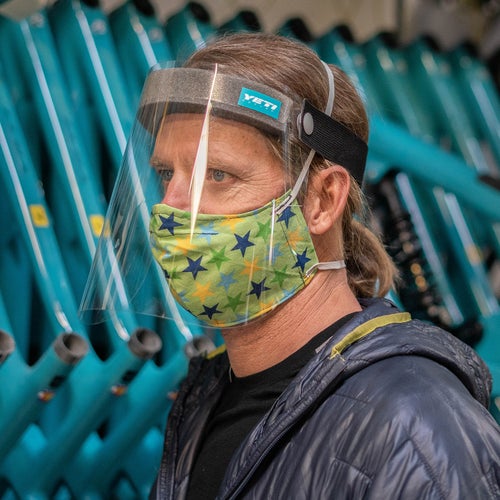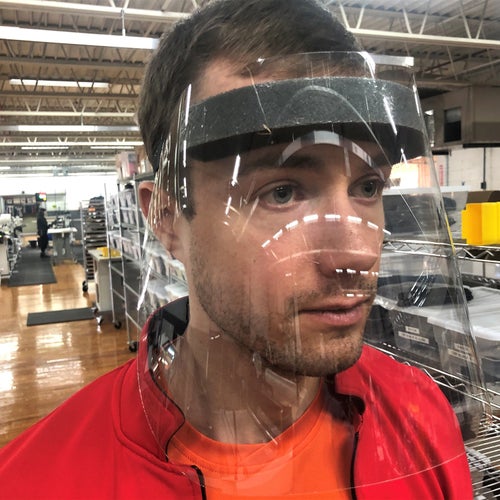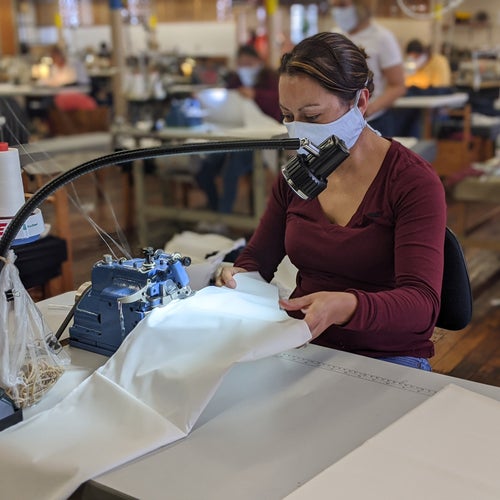How the Outdoor Industry Responded to Coronavirus
From iconic brands like Patagonia to that indispensable camping store in your hometown, the adventure economy has taken an unprecedented hit. The good news: the people who created these businesses are doers, and they're putting everything they've got into staying afloat and preparing for an uncertain future.
New perk: Easily find new routes and hidden gems, upcoming running events, and more near you. Your weekly Local Running Newsletter has everything you need to lace up! Subscribe today.
The bathrooms on the factory floor at Outdoor Research are a little different these days: they were redesigned so that you don’t have to open a door to access the stalls. And the lunchroom where employees gathered and shared food from several cultures is now off-limits. These changes weren’t part of a corporate plot to make OR workers miserable. This is life in the age of coronavirus.
Altering an entrance to keep out a pandemic seems like a minor move, but when the virus invades your town, you can’t overlook the little things, including door knobs that might be touched dozens of times per day. This is especially true if you’re a company that wants to stay in business, keep workers employed and safe, and make a tangible contribution to getting people through this unprecedented global catastrophe.
No city in the United States got hit hard earlier than Seattle, home to OR, a highly respected maker of apparel, gloves, and accessories that appeal to serious outdoorspeople. The 39-year-old company was born here and is still based here; among active Pacific Northwesterners, there’s a local-kid-makes-good affection for the brand, a regard that runs both ways.
So when the novel coronavirus began burning through metropolitan Seattle in late February and into March, OR executives asked themselves how they could keep working while giving something back. For years, part of OR’s business has involved making apparel and accessories for the Department of Defense; this is a big reason why it still runs factories in Seattle and near Los Angeles and not just overseas, because the federal government requires such items to be produced domestically. OR restarted its factories and made a leap—without any specific contracts or previous experience—into making protective masks for medical workers and other frontline personnel.
By the time you read this, OR will be turning out more than 100,000 masks every week. Many other outdoor companies have pivoted, to some degree, to manufacturing masks or protective gear, including Michigan sandalmaker Chaco, North Carolina’s Kitsbow Cycling Apparel, and Maine-based L.L.Bean, which rerouted fabric destined for dog-bed liners.
At the start of this year, the $887 billion outdoor industry was a galloping success story, growing faster than the nation’s GDP. It was a huge creator of jobs and tax revenue, and it drove a lot of consumer spending. Then the pandemic happened. Suddenly, a resilient and creative economic sector was slammed by a tsunami that has closed stores, severed supply chains, caused widespread fear, and restricted many of us from doing the activities we rely on for health, joy, and work.
From late April to late May, I spoke with nearly 30 outdoor-industry professionals—including CEOs, consultants, trade analysts, professors, and owners of small retail shops—to piece together how the industry responded to the unfolding pandemic, get a grasp of its ongoing challenges, and attempt to peer into the future.
Not surprisingly, the going has been rough for many businesses, and there’s a lot of confusion and uncertainty about what lies ahead. Pain will be a big part of the equation, obviously, but along with that there’s possibility. If the pandemic has shown us anything positive, it’s the importance people attach to being outside, in whatever way they can. The outdoors, and the industry that both depends on it and supports it, may benefit from a reawakening of that love, sooner rather than later.
“I’m not going to sugarcoat it. It sucks right now,” says Josh Weichhand, Chaco’s managing director for marketing. Chaco was originally a whitewater brand, and as Weichhand points out, in whitewater “there’s no such thing as just not paddling.” If you don’t paddle hard into oncoming trouble, he says, you’ll get thrashed. So you point your bow into the maelstrom and confront the problem. Ideally, you come out the other side stronger and wiser than you were before.


